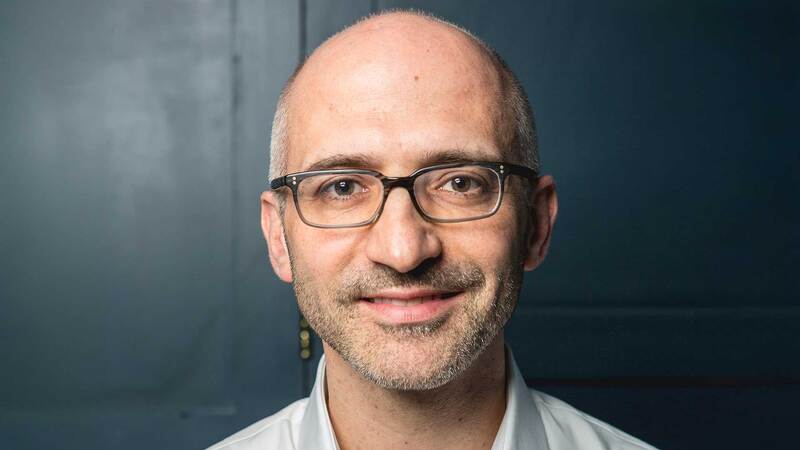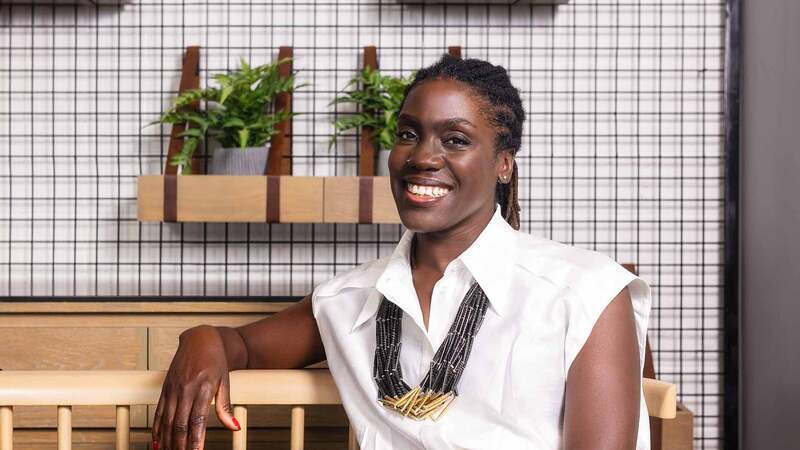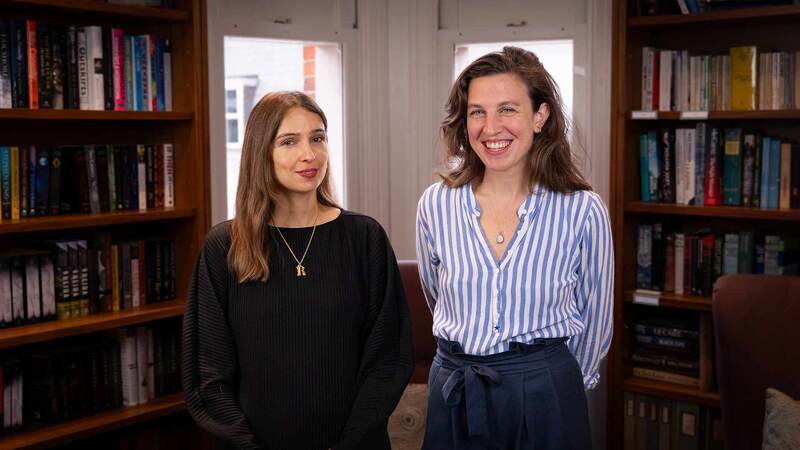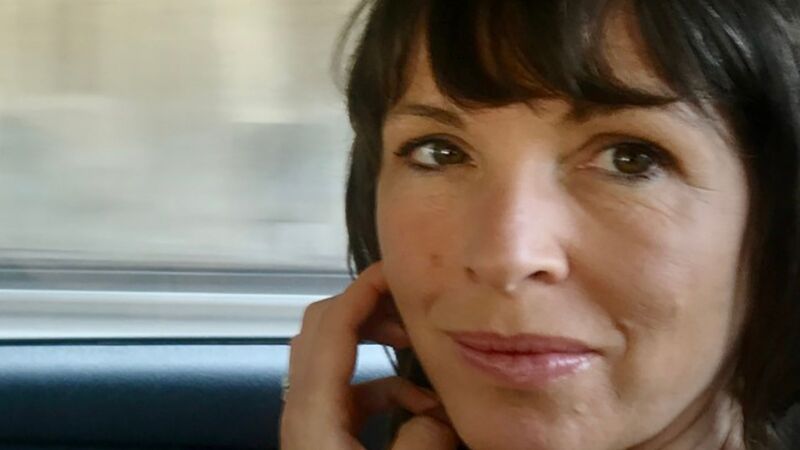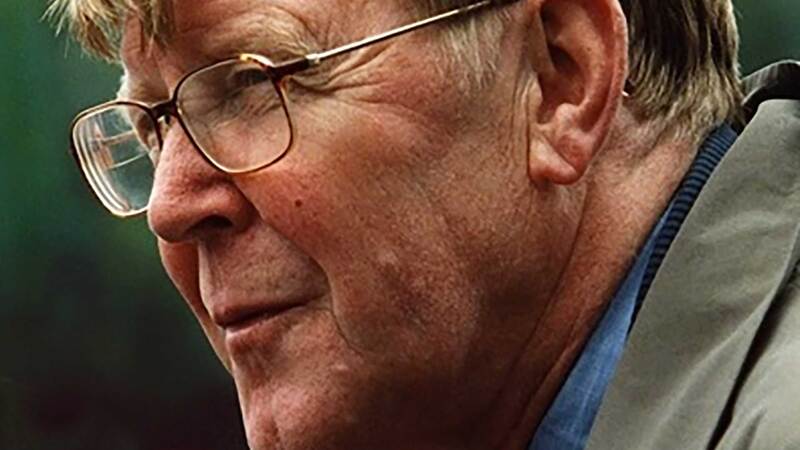You are viewing your 1 free article this month. Login to read more articles.
Faber m.d. Cannam bullish about the indie’s future after posting record results
Having taken the reins at Faber & Faber in April, Mary Cannam was able to report record turnover and profit in its most recent results—but there remains plenty of work to do, she says.
Mary Cannam, who in April was appointed the first female m.d. to run Faber & Faber in its history, is feeling confident about the future of the indie, and with good reason. Despite the rigours of the pandemic, Faber has just reported a record year, with turnover up 12% (£23.4m) and a similar lift for profit, at £2.9m. The results follow on from a string of stellar years for the company, during which time it has broken out literary star Sally Rooney as well as publishing major titles from stalwarts such as Kazuo Ishiguro and John Banville.
Cannam says the indie’s success is “at its heart quite simple... We have got a fantastic team at Faber, we have a really talented group of people who have a real investment and who really care about it.” She says the thing that has made the biggest difference in recent years “is a sense of clear editorial leadership and editorial confidence. We now have a fantastic group of editors and we know they will find the best talent and the best writers. But they are also confident about publishing the writers we already have incredibly well. That is coupled with real commercial expertise: if you look at some of the big campaigns you’ll have seen this year, you can see that. It’s really about editorial confidence and commercial expertise. And we have had real support from talented, innovative booksellers.”
Durham-born Cannam, “very proud to be a northerner”, started out as a bookseller at Waterstones branches in Durham, Stoke-on-Trent and Dundee, before moving to the chain’s head office in London and then—following a year out for treatment for leukaemia in 2001—into a stock control role at HarperCollins. She joined Faber as a sales office manager in 2003 and has been at the company ever since, in a succession of roles including handling sales and marketing operations and commercial director, taking over as finance director after David Tebbutt’s untimely death in 2011. (Tebbutt had encouraged her to qualify as a chartered accountant in her spare time.) She became chief operating officer three years ago, working very closely with then-c.e.o. Stephen Page, so it felt “completely natural”, she says, when Page asked her to take on a new m.d. position—as he restructured the company leadership, putting himself into the executive chair role—because she was already very involved with the running of the company day to day.
Becoming m.d. in the middle of the pandemic might seem a pretty steep challenge, but Cannam sees it much more positively. “Publishing, to me, is not a transactional business but a business built on emotions and relationships; reading is about reaching out to one another. Ishiguro said this in his Nobel Prize speech, it’s about one person saying to another, ‘This is how it feels to me, can you understand that, is this how it feels to you?’ I thought that was beautiful. The idea that we are human beings reaching out to one another, that’s what people responded to in the pandemic. I’m very much a believer in the power of the written word to change lives and increase empathy and understanding—and last year people very much wanted to spend their time learning, understanding and escaping. In some ways it was a great time to take over [the new role] because I think we are in a very stable, positive place as an industry, people have turned to reading and the recent Nielsen figures are a testament to this.”
She appears sanguine about the current supply chain crisis—“fortunately we are very well-served by GBS, but we’ve been doing what every publisher has been doing. Reprint times are slower, so we’ve been printing more up front and finding retailers are ordering more upfront as well”—though of the rising costs hitting the industry, she notes just that it will be incumbent on publishers to grow their top line in 2022 to counteract the effects of inflation, likely to be a major challenge.
Cannam calls her own appointment as Faber’s first female director—in a company which now has more women than men on the board, and a negative median gender pay gap—“a real moment” for Faber. “Very recently our first female board director Rosemary Goad [made a Faber director in 1970] died. She was P D James’ editor and she was promoted to the board at a time when it was predominantly male. I thought back to how she was described at the time, very much in the context of the men who were around her, and I think we’ve moved on since that time—but there is still more to do.” There are very influential and talented women in the business, and it would be good to see more in the top roles, Cannam adds.
What she wants to do, as a custodian of the “unique” company that is Faber, is “to go forward taking the key parts of that unique heritage with us and create a fresh new exciting future together,” she says.
When you pick up a Faber book you know it’s going to be something special and that has to continue—that’s non-negotiable from my point of view.
“The key things I want us to take are first, a commitment to quality: Faber has always been committed to publishing the very best writers. When you pick up a Faber book you know it’s going to be something special and that has to continue—that’s non-negotiable from my point of view. We have always taken a very long-term view as a company and, as a result, we have genuinely partnered with our authors, so we build their audiences and develop their work over their careers. There are 13 Nobel Prize-winning authors at Faber, and obviously Nobel Prizes don’t tend to come at the beginning of authors’ careers. I’m absolutely committed to that [approach] and would like to see it continue.
“Then, Faber’s always been brave about what it publishes, as an independent we can do that, and I would really like us to continue to do that. There’s a quote from T S Eliot in 1930, when he says it is better for Faber to make a bad blunder by publishing the wrong poet than to publish too many respectable poets. I take that to mean we should be brave about occasionally making bold decisions.
“And then for me, how we go about our business is as important as what we do. I have a very strong sense of right and wrong, and I would really like us to behave ethically and responsibly in everything we do. That extends to considering the environmental impact of the work we do as a book publisher. I would like us to be a book company where we can all feel the excitement and joy of the very privileged position we are in, working with these fantastic writers every day, and where we can have some fun, that’s really important to me. For the past year it has felt sometimes that is quite hard, because you don’t see other people. I think with remote working the fun has been slightly lacking.”
Widening the scope
Another focus for Cannam during her tenure as Faber’s m.d. will be diversity. “It’s really important that we have a company that better reflects the society in which we live, both in terms of the list and in terms of the make-up of our staff.” Faber now has a diversity and inclusivity action plan, reviewed monthly by the executive board directors, together with a couple of other people in the company: “We’ve kept it within the executive board because we think it is something that should inform everything we do and not be something that is run by a separate team off to the side somewhere.” The composition of the list is audited annually, looking at the submissions received and the books bought, with “good progress” in terms of the shape of the list, Cannam says. “The thing that is a little bit more difficult for us is quickly changing the make-up of staff because we have very, very low staff turnover—because people like working at Faber! That’s great, but it means progress on that front is likely to be a little bit slower.”
With Faber continuing to grow in size, will it need to change as a company? “You’re right, we’re at a mid-size. We would like to continue to grow; we won’t grow for growth’s sake, we grow by publishing great writing. We’re not a listed company that needs to grow for the sake of the shareholders. I guess in terms of how it affects us, the company still feels like a collegiate community of people, and having a company of 120 people means we all know each other quite well, we understand each other’s strengths and skills and we’re pretty respectful of them. When you are working in a bigger company, sometimes the clarity around roles is very good but the ability of people to be able to develop outside of those boundaries is less so. And for me, even while we do grow, one of the things I want to keep is the opportunity for people to develop outside of very restrictive boundaries and roles.”






